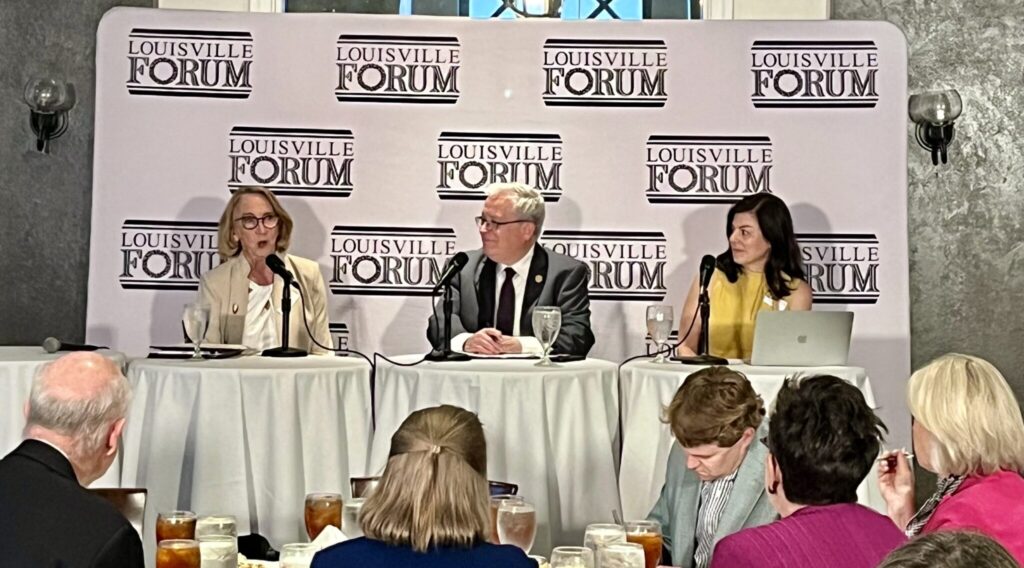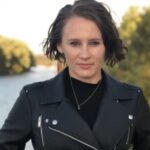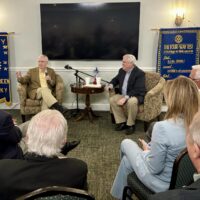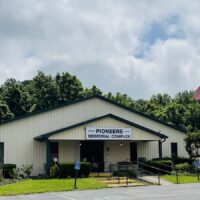LOUISVILLE — As Republicans in Washington advanced a proposed Medicaid work requirement Wednesday, two Kentucky advocates speaking in Louisville disagreed on the wisdom of the policy.

A House committee chaired by U.S. Rep. Brett Guthrie, R-Bowling Green, approved a plan for trimming $625 billion in federal Medicaid spending over the next decade that includes new copays and work and reporting requirements. The vote is an early step in moving the changes, part of a massive tax and spending bill, through both chambers of Congress. The federal Medicaid work requirement would not take effect until 2029, under the bill approved by Guthrie’s House Energy and Commerce Committee during a marathon session that lasted 25 hours.
The federal-state Medicaid program pays for almost 1 in 3 Kentuckians’ health care.
The Louisville Forum already was planning to host a debate around the question: Will changes to Medicaid “heal or hurt?” after Medicaid also took center stage in Kentucky’s 2025 legislative session.
Deborah Yetter, a Kentucky Hall of Fame journalist who writes for the Lantern, moderated the Wednesday panel between Jim Waters, president of the Bluegrass Institute for Public Policy Solutions, and Emily Beauregard, executive director of Kentucky Voices for Health.
On work requirements
Waters and Beauregard spent a large chunk of the debate discussing the ins and outs of Medicaid work requirements.
During the legislative session Kentucky lawmakers added a mandated work requirement for Kentuckians between the ages of 18 and 60 who don’t have dependents and are both “physically and mentally able to work.”
Waters said that “there’s going to be some hurt whenever you try to rein in a program that’s really exploded in cost” and said Medicaid “was intended to be for the truly disabled, indigent.”
Top 10 in share of population covered by Medicaid
- District of Columbia 38%
- Alaska 36%
- New Mexico 36%
- California 35%
- New York 34%
- Louisiana 34%
- Kentucky 31%
- Oregon 31%
- Hawaii 29%
- West Virginia 29%
- 50 states and D.C. 24%
“It was not meant to be a destination,” he said. “It was meant to help along the way.”
“Contrary to maybe what some people think, there is not an automated taxpayer machine there in Frankfort,” he said. “I mean, taxpayers are not an endless source of resources, so resources are limited, and they need to be spent in a way that actually helps people.”
Beauregard said “we don’t need work requirements for Medicaid” and said reporting requirements often lead to administrative hurdles that keep people from being able to prove their employment, such as hard-to-prove seasonal work or literacy issues.
Beauregard said work requirements are “short sighted” because “it is a prerequisite to work that you are healthy.”
“While we do spend a decent amount of money on Medicaid, the cost of being uninsured is much greater — and it’s not only greater to the individual, it’s greater to our entire economy and to our health care system,” she said.
For Waters, Medicaid is “unsustainable” as it is.
“Don’t we want fewer people on Medicaid? I think that should be the goal,” Waters said. “Fewer people on Medicaid means when people are in the private workforce getting coverage from employers, are independent, are experiencing the dignity of work and effort,” he said. “If everybody, pretty much, is working …. that’s receiving Medicaid benefits now, like I’ve heard, and then it’s a very small percentage that aren’t, what’s the problem with implementing a program that gets the rest of those folks onto an employer’s payroll and off of the taxpayers’ benefit plan.”
On fraud
Lawmakers have cited fraud prevention as a motivator to more thoroughly oversee and rein in Medicaid.
Beauregard said “there’s very little fraud for individuals” and that fraud is “mostly in the provider arena, and it’s not widespread.”
“Individuals aren’t able to take advantage of their Medicaid coverage for nonmedical purposes,” she said. “You can’t take your Medicaid card and use it to purchase groceries or go on a vacation. Very few people are getting a root canal for the fun of it.”
Waters believes “there’s more fraud that we even know right now” and called on the newly established Medicaid Oversight and Advisory Board to “be aggressive in looking at what fraud is happening and the extent of it.”
“Taxpayers deserve to know what that is, and to have somebody looking at that,” he said.
This article is republished under a Creative Commons license from Kentucky Lantern, which is part of States Newsroom, a network of news bureaus supported by grants and a coalition of donors as a 501c(3) public charity. Kentucky Lantern maintains editorial independence. Contact Editor Jamie Lucke for questions: info@kentuckylantern.com. Follow Kentucky Lantern on Facebook and Twitter.
Sarah Ladd is a Louisville-based journalist and Kentuckian. She has covered everything from crime to higher education. In 2020, she started reporting on the COVID-19 pandemic and has covered health ever since.






